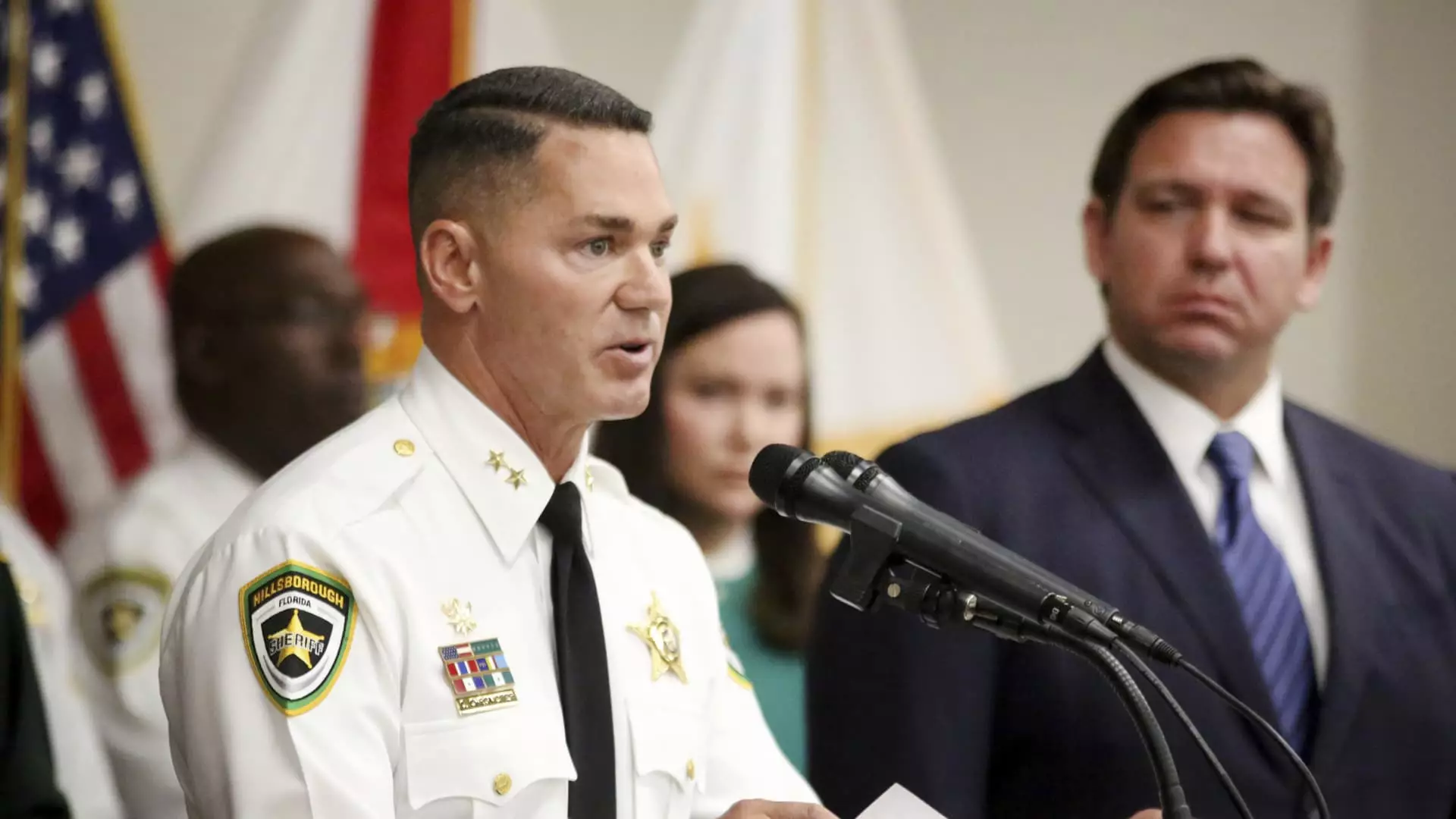In a political landscape fraught with contentious appointments and fervent debates, Sheriff Chad Chronister’s recent decision to withdraw from nomination as the Drug Enforcement Administration (DEA) Administrator has stirred both relief and concern among various stakeholders. Notably, this resignation from consideration comes only three days after his nomination was announced by President-elect Donald Trump, marking Chronister as the second nominee to retract his candidacy within a remarkably short timeframe. The frequency of such withdrawals raises questions about the selection process for key roles within the incoming administration, as well as the underlying pressures that nominees face when considering such pivotal public offices.
Chronister’s reluctance to take on the role speaks volumes. He described the nomination as “the honor of a lifetime” but ultimately cited his ongoing responsibilities toward Hillsborough County, Florida, where he has served as sheriff since his appointment in 2017. This decision underscores the potential conflicts that may arise between local public service obligations and national administrative duties, especially for those deeply embedded in their current roles. As Americans witness swift changes in personnel selections, it becomes crucial to scrutinize what these shifts indicate about the efficacy, expectations, and pressure surrounding political appointments.
Chronister’s nomination occurred within a broader political narrative focused on his commitment to tackling issues such as drug trafficking, specifically the ongoing crisis surrounding fentanyl. Trump heralded Chronister as a figure capable of enacting policy changes to secure borders and protect citizens from drug-related harm. However, the swift retraction from the nomination illuminates a growing skepticism about the feasibility of such lofty goals amidst complex political realities.
Notably, skepticism wasn’t strictly confined to partisan lines. Critics from within the Republican Party, including Congressman Thomas Massie, highlighted past controversies associated with Chronister’s tenure, particularly during the COVID-19 pandemic. These criticisms serve as a reminder of how past actions can have implications for future roles, particularly when those actions are viewed through the lens of public sentiment and political repercussions.
The arrest of Pastor Rodney Howard-Browne for holding services amid pandemic restrictions marked a contentious moment for Chronister, who argued that such gatherings endangered public health. This incident not only stoked controversy but also led to discussions amongst legislators regarding individual liberties versus public safety, a key debate that resonates deeply within the fabric of American politics. Massie took to social media to express his relief regarding Chronister’s withdrawal, emphasizing how past decisions can haunt political figures as they pursue higher office.
The withdrawal of Chronister opens up further questions about who will now be considered for the role of DEA Administrator. Each decision made by Trump’s administration will undoubtedly be scrutinized, especially given the current political climate marked by polarization and heightened awareness around drug-related issues. The fallout from these nominations and subsequent withdrawals will reach far beyond individual appointees; they reflect a trend of wavering trust in the political selection process itself.
Moreover, the implications of Chronister’s withdrawal could serve as a catalyst for the re-evaluation of similar appointments. The incoming administration might need to consider nominees whose positions carry fewer prior controversies and who can better align with the public’s expectations for drug enforcement. As America grapples with an ongoing opioid crisis, the need for effective and publicly supported leadership within the DEA has never been more pronounced.
Chad Chronister’s decision to withdraw from his nomination offers a glimpse into the challenges and intense scrutiny that precede political appointments. His experience highlights the critical intersection of local governance and national responsibilities in public service. As the Trump administration seeks to fill key positions that substantially impact national policy, the evolving dynamics surrounding nominations will continue to shape the landscape of American governance and public trust.


Leave a Reply